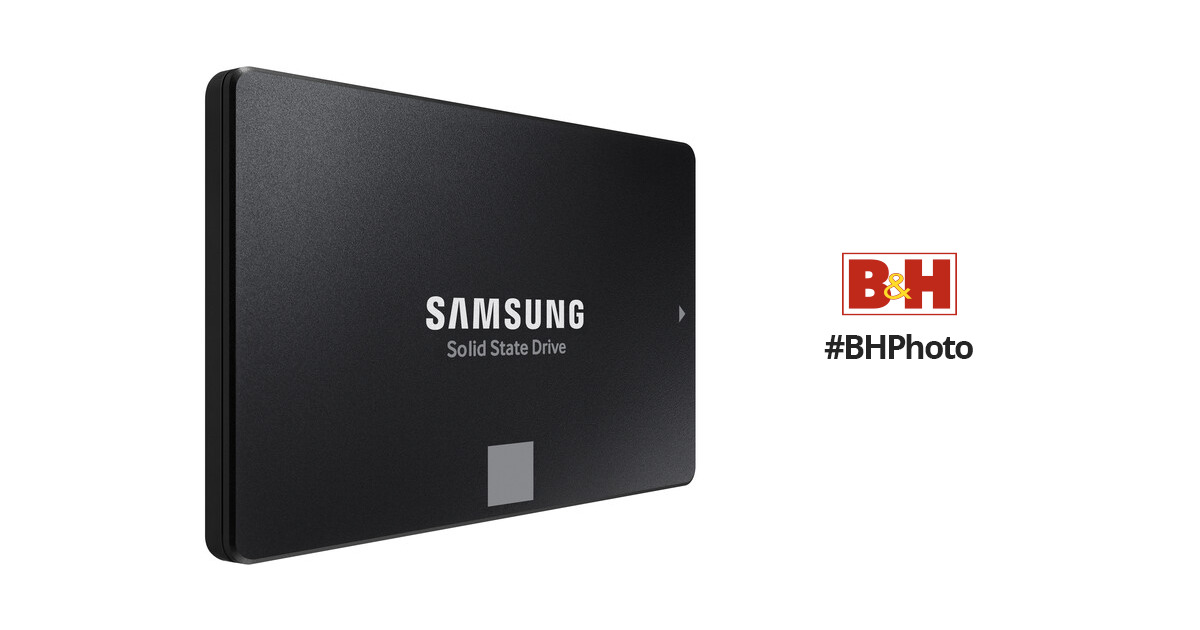

- #FORMAT SAMSUNG SSD 850 EVO FOR MAC MAC OS#
- #FORMAT SAMSUNG SSD 850 EVO FOR MAC INSTALL#
- #FORMAT SAMSUNG SSD 850 EVO FOR MAC UPGRADE#
- #FORMAT SAMSUNG SSD 850 EVO FOR MAC SOFTWARE#
- #FORMAT SAMSUNG SSD 850 EVO FOR MAC PLUS#
Seems like I'll end up with Ubuntu on this machine, as I can't install either Mountain Lion, El Capitan or restore a Time Machine backup. UPDATED: I've successfully installed Ubuntu 15.04 on the hard drive and it's working fine, and then I swapped the 500GB drive with a 240GB Samsung SSD and got exactly the same issue. "Info" on the partition created, shows "writable" yes, but "bootable" no, which I would expect at this point. A secure erase is very different than a format or repartitioning. You can then use the Windows utilities to create partitions etc. This cleans out all the NAND's and restores the SSD to 'like new' performance.
#FORMAT SAMSUNG SSD 850 EVO FOR MAC SOFTWARE#
At this point, I choose "First Aid" which completes with no errors. Hate to be slightly contrary, but to maintain the SSD performance, use the manufacturers software to do a secure erase. This works without a problem, and the new partition appears. UPDATED: Just to clarify, in the Disk Utility in the El Capitan installer, I choose to partition the drive using the following options: 850 EVO but the speeds I am getting are even below what my HDD does.

Therefore Samsung could recover this performance disadvantage in the EVO series with a so-called turbo-Write buffer and achieve a similar.
#FORMAT SAMSUNG SSD 850 EVO FOR MAC MAC OS#
using an SATA to USB3.0 adapter) The new SSD must now be formatted for the first time using the hard disk utility (as Mac OS Extended Journaled ) Then Carbon Copy Cloner. And now I'm trying to get the data back from the external drive to my newly installed ssd but having difficulties. Then I installed the Samsung ssd in my Mac. I used carbon copy cloner to clone my Mac to an external drive (WD My passport for Mac).
#FORMAT SAMSUNG SSD 850 EVO FOR MAC UPGRADE#
Connect the SSD to the Mac Mini via USB (e.g. I want to upgrade my MacBook Pro mid 2010 to Samsung ssd 850 Evo. This one is reasonable to produce but on the other hand a bit slower. Before making a backup using a TimeMachine, a backup is always available in an emergency. The new Evo series is designed for the home user and relies on TLC flash memory.

I simply get any of folder with question mark / cancel symbol or flashing between the two when trying to run off that drive. I can successfully install Mountain Lion or El Capitan on the new SSD, but it never boots. Recently, the operating system crashed and the hard drive is no longer recognised in recovery mode, so I purchased a 500GB samsung SSD to go into the machine. The WD Black P50 Game Drive, tested here in 1TB format, and available in. In addition, you need a SATA to USB drive adapter in order to transfer the data from your present HDD to the new SSD.I have a Mid 2012 13 inch MacBook Pro that's been running successfully with a hybrid drive (3rd party) for the last few years. For example, well measure the Samsung 850 PRO, a TLC SSD with 1TB capacity. And then a handful of other games on the 850 EVO. We recommend you use antistatic tools for installing the SSD wearing an antistatic wrist strap will enhance safety. Will this in anyway negatively effect my Samsung xp941 256GB M.2 SSD My plan is to have BF4, EVE-Online and ARMA3 installed on the m.2 drive where the OS is.

The preparations and tools required for replacing a MacBook (Pro) drive are identical to those necessary for any other system (see our general upgrading tutorial for notebooks): you need to work on a clean, electrostatic-free surface. Mac users will need to download similar cloning software – we chose the shareware tool SuperDuper! and describe the cloning process in more detail using this tool.
#FORMAT SAMSUNG SSD 850 EVO FOR MAC PLUS#
The main difference to upgrading a Windows system is that the Samsung 850 PRO SSD (256GB) we chose comes with Windows migration software that guides the user through the cloning process (copying the Windows system plus the data to the new SSD).


 0 kommentar(er)
0 kommentar(er)
